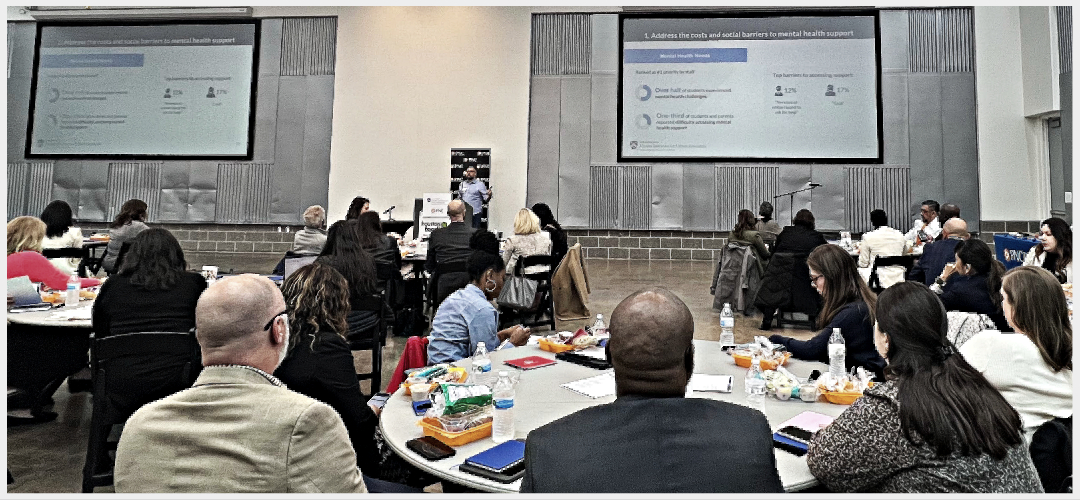HERC hosted a special summit with more than 60 businesses, nonprofits and other organizations to discuss its findings, “Understanding and Addressing Student and Family Need in HISD,” on Tuesday at the Houston Food Bank’s headquarters.
“Teaching a student and helping them maximize their academic potential is not just about pedagogy and curriculum,” HISD Deputy Superintendent Rick Cruz said. “When a student enters a classroom, they come in with so much more, whether it’s positive experiences, culture and background. In some cases, it’s negative experiences like trauma and issues that get in the way of their ability to learn.”
The HISD Student Needs Survey, conducted by Kori Stroub and Camila Cigarroa Kennedy, was completed by about 43,000 students, 8,000 parents and 5,598 staff members across the district.
“Staff ranked mental health as the No. 1 priority for students,” said Stroub, associate director of HISD research for the Kinder Institute. “Over half of students in the district experienced mental health challenges during the 2021 school year. One-third of students and parents reported difficulty accessing support.”
When asked what barriers were preventing students from seeking mental health support, 12% of respondents said they were nervous or embarrassed to ask for help. For 22% of parents, the primary barrier was cost.
Other needs included physical health — especially vision care — home learning resources and enrichment activities like mentoring, tutoring and extracurriculars. Students who took the survey in Spanish reported higher needs across the majority of the survey's five categories.
To address these numerous needs, some of HERC’s key recommendations included:
- Improving access to mental health support by addressing the costs and the social stigma toward seeking help
- Support the physical health of students and families by ensuring everyone has the opportunity and resources to attend annual doctor, dentist and vision check-ups
- Prioritize connecting families with free or low-cost resources that will help them pay for housing.
HISD launched its wraparound services department in 2017, serving a small selection of high-need schools. HISD now employs a dedicated wraparound specialist at every campus in the district. Wraparound services are non-instructional factors that students need to succeed in school like clothing, extracurricular activities, food, health care, shelter, transportation and more. In 2022, HISD introduced a telehealth program to expand health care access to its students.
Following the presentation of HERC research, the more than 100 attendees gathered into breakout groups to discuss how mental health, physical health, basic needs, home learning and enrichment activities and overall student well-being can receive more support.
“Often when people are looking at academic research, it's done by academics for other academics,” HERC Director Erin Baumgartner said. “It sits in a journal somewhere. The only people who have access to it are people on university campuses. We want to make sure research is happening in a different way, to really benefit the community.”
The seminar was the first in a series of events to engage the community around the Kinder Institute’s work with its school district partners. The next event on April 3 will focus on early childhood education.
“Our theory of change in the district has been that if you couple strong academic support with a whole child approach that looks at a child holistically, that addresses their basic needs, social, emotional needs and mental health needs, that students will thrive academically,” Cruz said. “We see that bear out in the data.”


